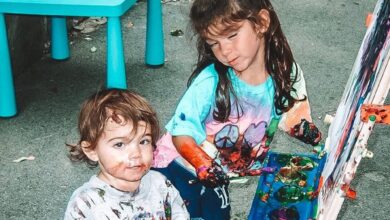‘Ravalear’ Cast and Crew Discuss Their New Max Series

Barcelona, Spain — In the vibrant Raval neighborhood of Barcelona, a production crew is hard at work filming scenes for the upcoming Spanish original series, “Ravalear,” set to premiere on Max in 2026. The series, created by filmmaker Pol Rodríguez, draws inspiration from his family’s own experiences running a popular neighborhood bar, Can Lluis, for generations. The story revolves around Can Mosques, a fictional restaurant at the heart of the narrative, and delves into themes of gentrification, identity, and survival in modern-day Barcelona.
“Ravalear” is not just another European drama; it is a deeply personal tale of memory, community, and the harsh realities of economic displacement. The series, produced by Barcelona’s Arcadia Motion Pictures, promises to be a raw and immersive experience for viewers. Rodríguez, the showrunner, shared that the idea for the series stemmed from the loss of his family’s restaurant to a powerful investment fund during the pandemic, leading him to reframe the story as a thriller.
The multi-generational family at the center of “Ravalear” finds themselves at odds with a formidable investment firm that seeks to buy out their beloved restaurant. The characters in the series are portrayed as morally complex, blurring the lines between heroes and villains. The narrative is grounded in the urban tensions of skyrocketing rents, speculative real estate, and cultural erasure, highlighting the clash between memory and progress in a rapidly changing city.
Filmed on location in the Raval neighborhood, as well as in Montjuïc and Poblenou, “Ravalear” blurs the lines between fiction and reality. The cast includes a mix of veteran actors and local first-timers, adding to the authenticity of the storytelling. The set, including the recreated Can Mosques restaurant, feels like a real-life street in the barrio, with local businesses and residents participating as extras to enhance the sense of community.
The series features a multilingual approach, seamlessly shifting between Catalan, Spanish, Urdu, Arabic, and English to reflect the diverse linguistic landscape of the neighborhood. The polyphony of languages adds depth to the storytelling, capturing the essence of the multicultural environment of Raval. The cast members embraced the challenge of performing in multiple languages, emphasizing the power of non-verbal communication in storytelling.
While “Ravalear” tackles political themes such as gentrification and displacement, the creators are careful to avoid didacticism. The characters are portrayed as complex individuals grappling with their own motivations and desires, adding layers of nuance to the narrative. The series serves as a love letter to working-class solidarity, exploring the bonds that tie a community together in the face of adversity.
As “Ravalear” prepares for its international debut, the creators remain committed to authenticity and specificity in storytelling. The series is not tailored for export but rather aims to capture the universal truths found in the details of a particular community. The production process has been grueling but rewarding, with meticulous attention to detail in every aspect of the storytelling, from kitchen choreography to emotional performances.
When “Ravalear” premieres on Max in 2026, it will offer viewers a poignant reflection on the challenges faced by communities in the modern urban landscape. Through the lens of a family fighting to protect their heritage, the series raises important questions about the cost of progress and the value of preserving cultural identity in the face of relentless development. Rodríguez hopes that the series will prompt viewers to consider what they are willing to sacrifice in the name of advancement.





